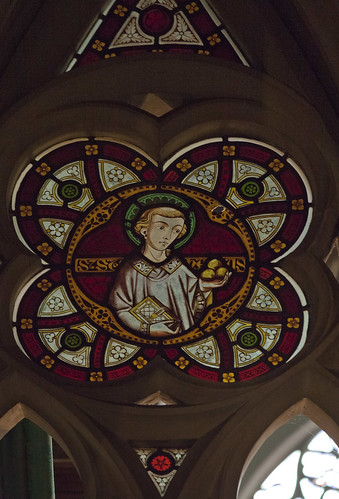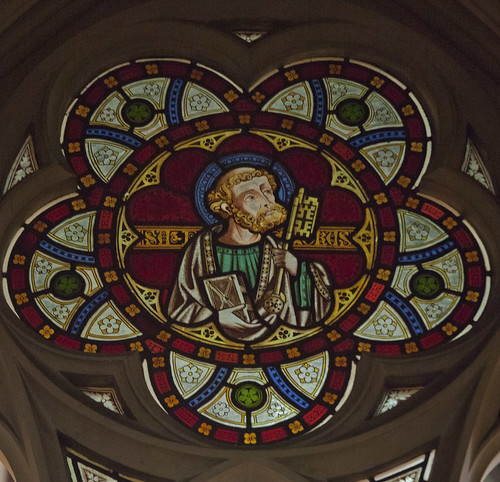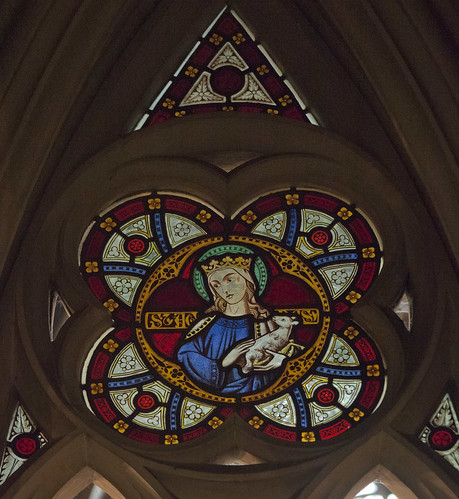 |
| St Stephen |
It is natural to progressives in the West to say that the problem with Islam is not that it is a false religion based on a fraudulent revelation - the distinction between a true and a false religion is impossible for them to make - but that it is simply 'backward'. It needs to go through the process which Christianity went through to make Christianity harmless. That, at any rate, is the view taken by the subeditor on the UCANews site.
The article, by Fr Michael Kelly SJ, is given the hopeful headline and subheading:
Waiting for an Islamic reformationWill the Muslim world follow the same historical arc as the West?
Fr Kelly seems to get cold feet about this idea as soon as he starts to write. He concedes, first, that the Reformation (by which he and the headline writer mean not the Catholic Reformation but the Protestant Revolt) in Europe was not the end, but the start, of the dreadful wars of religion; second, that the later history of Europe hasn't exactly been a picnic; and third, that Islam had its own 'Reformation' with the split between the Sunnis and Shias, which created the potential for internecine carnage, just as the European one did.
But he wants to salvage something from the Whig view of increasing light and decreasing superstition and violence, so he comes up with this.
Islam had its reformation very soon after the prophet's death when the basic division between Shias and Sunnis occurred. But there has never been any equivalent of the Enlightenment, the French Revolution or the US Declaration of Independence that shaped what rationally operating Western political states inherited.
It is nice that he understands the French Revolution as the practical political manifestation of the Enlightenment. Was this, then, the start of a new era of peace and stability? An era in which
Europe and the US became civilized, started to develop and respect the rule of law and saw better ways of resolving disputes than killing opponents the hard way.
 |
| St Peter |
Or was it not, rather, the beginning of a bloodbath that, first, martyrized the Church in France and which afterwards engulfed the whole of Europe, and indeed many countries beyond, for a generation? Wikipedia estimates 3.5 million people died in the Napoleonic Wars, after perhaps 56,000 had died in the Terror and up to a quarter of a million in the War in the Vendee (here).
What do they teach in history lessons in those Jesuit seminaries?
It is indeed interesting to compare the effects of Enlightenment ideas with those of Catholicism, when it comes to living in harmony with others. The key idea of the former, in its revolutionary incarnation, was formulated by Jean-Jacques Rousseau. He thought that we could all be self-governing, by the simple expedient of agreeing heartily with the state's every law and policy, and wanting to do exactly what we were being told to do. He declared that political disagreement can never be legitimate, a matter of reasonable people taking different views; no, disagreement was always the result of people being irrational, ignorant, or selfish, and the role of the state is to 'force men to be free'. This is the basis not only of the French Revolution, but of the theory of re-education found in Communism, and still lurking beneath the surface in progressive thinking in the West today.
 |
| 500-590 Catholics, including many children, were killed by Revolutionary Forces in the Massacre of Lucs-sur-Boulogne (Feb. 28, 1794) during the Vendée War- (Windows at the Petit-Luc Chapel) |
 |
| St Agnes |
The Church, on the other hand, does not expect to be able to convert everyone right away. Nor does she expect everyone to agree on complex practical questions, and does not find diversity of customs intolerable. When difficulties arise, she directs her children to consider their own sinfulness. Her compassion for the pagan and the sinner does not lead her to use coercion and extermination, for while the innocent must be protected from the criminal, the criminal's conversion is ultimately a work of the Holy Ghost. The reality of Original Sin forces Catholics to be realistic about creating paradises on earth, and humble about their own moral state. And as Fr Kelly hints, the Church as a supranational institution, can serve to promote peace between nations, as well as within them.
The problem in the Middle East is not a religion which lacks the pacifying effects of the Enlightenment. Even less is it a problem of religion in and of itself. If they want to understand what is going on, progressives inside as well as outside the Church will have to start making distinctions between one religion and another.
Roundels of stained glass: photos taken at St Edmund's College, Ware.